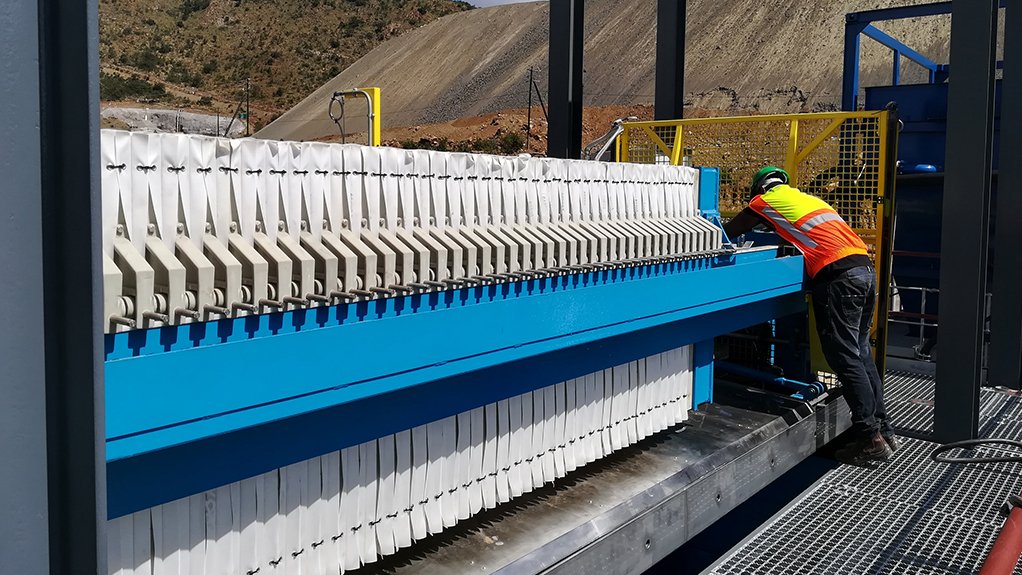A Limpopo chrome mine facing a number of risks in disposing of its tailings, has found an environment-friendly and cost-effective solution.
The chrome operation was aware of the challenges that a traditional tailings storage facility (TSF) could create, including the large footprint of a tailings dam, the expense of lining the tailings dam and the environmental and social impacts.
The mine sought a solution that would help to conserve scarce water resources by avoiding evaporation, while also preventing potential groundwater contamination that might result from solution seepage. In addition, the risk that a normal TSF could present to the local community had to be avoided at all costs.
Multotec explored the full range of its dewatering solutions before recommending the most suitable one for the mine’s required application.
The filter press technology was chosen as the most suitable option, as it was shown to meet the requirements in the most cost-effective manner. With the use of its mechanical dewatering strategy, the filter press was able to recover about 80% of the clean water in the slurry.
The cake left from the tailings after water removal could then be moved by conveyor to a dump area, which is easier and safer to manage than a tailings dam.
The solution is seen to facilitate short cycle times, less wear on consumables and lower power consumption. The cakes are also easily released and leave little residue behind on the cloth.
Multotec explains that a combination of thorough investigation, extensive test work and many years of experience in the field, allowed it to select the most effective solution. The company’s research team used slurry samples to test various solutions and to find the most suitable technology for the application. The company also adapted its equipment to optimise the results.
In this case, the abrasive impact of the tailings material was one of the key factors to be accommodated. While the filter press was proven to be the most effective solution, there was still considerable wear experienced by the filter cloth in the press.
The company explains that through a combination of field experience and metallurgical expertise, it developed an improvement that would better protect the high-wearing areas of the filter cloth and deliver longer wear life.
The detailed preparation behind this solution, allowed for the final commissioning on site to be completed timeously.
Another recent application of filter press technology was in coal tailings, for a coal mine in the Mpumalanga area. Multotec again relied on test work to find the most suitable solution for the application.
The filter press was required to operate in demanding conditions, including a high tonnage throughput. The filter cloth was customised in an effort to improve its rigidity and wear-life.
The result was that the cycle life per cloth was doubled based on typical tailings applications and the feed arrangement and process control were also optimised to suit the process.
In addition to these applications, the company has also formulated filter press solutions for copper sulphide, copper oxide and gold sludge applications. The company provides turnkey solutions which include various items of auxiliary equipment related to the filter press.
EMAIL THIS ARTICLE SAVE THIS ARTICLE
To subscribe email subscriptions@creamermedia.co.za or click here
To advertise email advertising@creamermedia.co.za or click here













